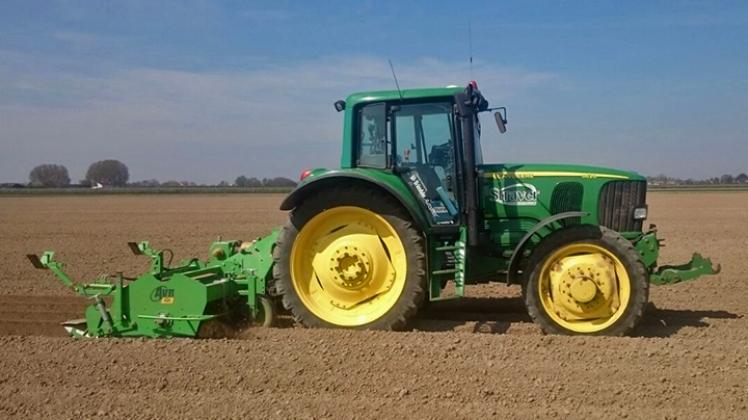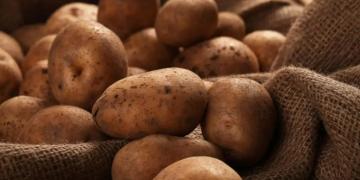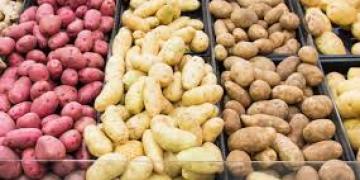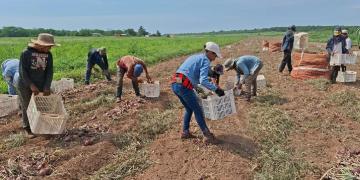Reino Unido: Nanoparticles may make potatoes more nutritious
Research to make potatoes more nutritious by using nanoparticles is bearing fruit, according to the AHDB-funded researcher involved. Karen Davies, of the School of Science and Technology at Nottingham Trent University, reports that trials applying

In five trials yields were raised by 22-25%, dry matter content was increased by 5%, and the iron content was lifted by 5%, she says.
Nanoparticles are tiny – less than 100 nanometers in size (a thousand times less a human hair’s width) - but they have considerable potential in crop production, adds Ms Davies who is working on a PhD project*.
“Dietary anaemia is a huge problem, affecting 46% of people globally, and 25% in the UK. Potatoes are naturally high in iron, with a typical portion supplying as much as two portions of beef steak. Fortified potatoes could be a low cost, safe way of providing 100% of our dietary nutritional requirement.”
Most soils contain plenty of iron but it is poorly available to plants, and chelated iron fertilisers are costly and offer only limited benefits, she says.
Her supervisor Dr Gareth Cave has developed a machine able to produce high outputs of nanoparticles, up to 1kg/hour, making a fertiliser approach potentially viable.
The use of nanoparticles is controversial, says Ms Davies.
“But nanoparticles are all around us in the air we breathe – in dust and some pollen particles to foods such as cornflour and icing sugar.
Her work on potatoes is part of wider research into the impact of various iron, calcium and zinc nanoparticles on other crops including tomatoes, chilies, spring onions and strawberries testing foliar, soil, drench and seed-coating application methods.
Click here to read the full article at www.fginsight.com.
Fuente: http://www.freshplaza.com/article/161067/UK-Nanoparticles-may-make-potatoes-more-nutritious




